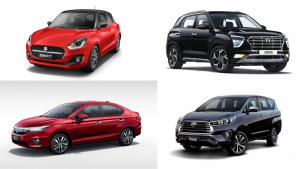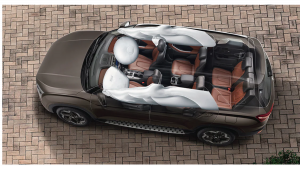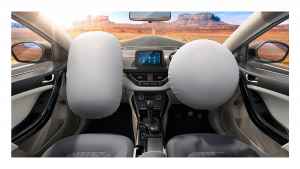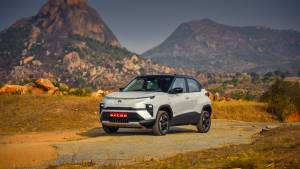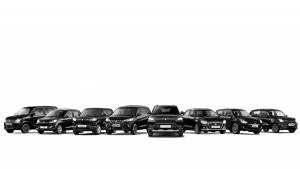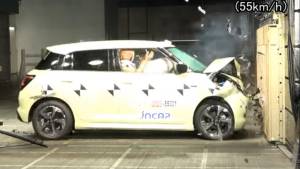Ultimatum to shift to Electric Vehicles
SIAM (Society of Indian Automobile Manufactures) had its Annual Convention on 7th September. The heads and senior management of almost all automobile manufacturers were present. One of the speakers was Union Transport Minister Nitin Gadkari, and he used this opportunity to target the entire industry. He said "I wish from my heart that your sales growth should be less". He also said that he wanted the sales growth to slow down because vehicles, particularly those running on diesel, were choking our roads and resulting in pollution.
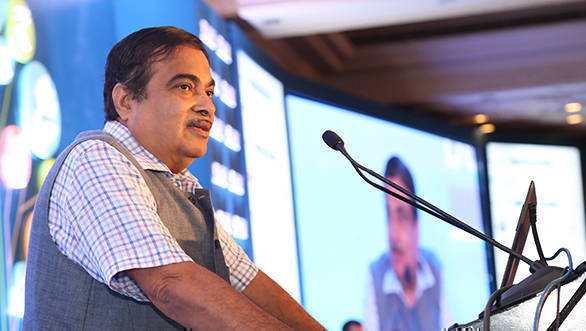 Nitin Gadkari, union minister for road transport and highways speaks at the 2017 SIAM Convention
Nitin Gadkari, union minister for road transport and highways speaks at the 2017 SIAM Convention
If that was not enough, Nitin Gadkari further said "Petrol-diesel banaane walon kaa band-baja bajaanaa hai". Yes, he actually threatened manufacturers of petrol and diesel vehicles that he was personally going to take their case. Gadkari told them they will have to shift to making electric vehicles or those that have engines which run on ethanol and bio-fuels. The Union Transport Minister also said the government was committed to its plan of having only electric vehicles in India by 2030.
I am sure the auto industry is stunned by these statements and attitude of the Union Transport Minister, Nitin Gadkari. The auto industry has spent god knows how many thousands of crores of rupees to build their manufacturing facilities and factories. For a long time now, whichever government has been in power at the center, has invited foreign investments. The present government and Prime Minister Modi have been in the forefront of saying 'Make in India'. But now you have a very senior minster in the same government, saying I want your sales to drop. Is this not akin to saying, 'Make in India', but 'Don't Sell in India'.
The auto industry is struggling to drive growth and justify their heavy investments. But if the government wants their sales to drop, I think this is unfair. Automobile manufacturing is one of the biggest and most successful industries in India. They employ huge number of people and so many others also earn their livelihood thanks to this industry. Auto makers also pay enormous sums in taxes and other levies and the government also earns in many other ways from them, for example charges for the electricity and water used. In fact I think it's high time the auto industry did a detailed survey and came up with proper figures to show how many people they employ and how many households they support both directly and indirectly. Automobile manufacturers also need to collate data of the exact amount of revenue the government earns from them annually, again both directly and indirectly. For example all the taxes paid by employees of auto companies, also go into the government's coffers. The industry should then share all this information with the public and become far more vocal. An industry that is contributing so much to our nation and its economy cannot be treated as an enemy of the state.
Let's also look at the government's plan of only having electric vehicles in India after 2030. France, a far more advanced country has said it will stop sale of petrol and diesel vehicles by 2040! Britain has also said its target for this is 2040. Given this it's all very well for our government to say they will do it by 2030. We have all heard such tall claims hundreds of times before and I am fairly confident that this will not happen. And even if it does it will not be implemented properly.
There is one very important thing that Union Minister Nitin Gadkari and our government are not speaking about. The fact is even if we only have electric vehicles on our roads, it's not going to reduce pollution levels drastically. Simply because, an electric car charged by power generated by dirty coal plants, actually results in more emissions than those produced by a petrol or diesel car. Yes, the only difference will be cars will not pollute, but our coals plants that will need to create more power will do the polluting instead. The reality is for electric cars to reduce pollution; they must run on electricity that is sourced from a renewable source like solar or wind energy. I am told almost 75 percent of power in India is generated from polluting coal burning thermal plants. And this is not set to change anytime soon and India is still far away from producing green energy or eco friendly electricity. So the shift to electric cars is certainly not going to reduce pollution significantly.
Then there are also several other practical issues. What do manufacturers do with the petrol and diesel engine manufacturing plants they have set-up at a huge cost. Should they simply suffer losses and scrap them. The government has also made it clear that they will not give auto manufacturers any subsidies or incentives to produce electric vehicles. In fact they have made the GST on hybrid vehicles so high, that most manufactures have put their plans on hold for these vehicles.
Presently we see a lot of stability in oil prices and several experts say that this trend will continue going forward and some even suggest that oil prices may drop. Engineers all over the world are also working to make petrol and diesel engines more fuel efficient with fewer emissions. So what are we going to do in India? Ban them even if they are far more affordable than electric vehicles.
What about charging points? I believe currently there are just about 500 charging points in the entire country. How is this infrastructure going to grow and that too so fast? The government is very proud that it has introduced and sanctioned electric rickshaws. But has anyone looked where and how they are charged. In most case the drivers or owners have merely tapped into the electric lines illegally and are stealing power to charge their vehicles. This is of course at the cost of other law abiding and taxpaying citizens. Most of these rickshaws are really rickety and do not provide even the minimum amount of safety. Let me share a personal experience. I took one of these ricks in Jaipur to go explore the old city. As maximum torque develops instantly in electric vehicles the driver was zipping through the narrow crowded lanes at a pace that was extremely uncomfortable. The rickshaw had practically no cushioning and I was flying around in the back seat and had to hold on dearly to the sides of the rick to avoid falling off. Only after many requests did the driver ease off. Soon it was dark and some of the streets in the old city had limited or no lighting. I asked the driver to put on his headlight. But he refused saying it would drain the battery and reduce his range. When I asked he confirmed that he never put on any of the lights because this drained the battery!
In my humble opinion, whatever the Union Transport Minister Nitin Gadkari or the government may say, having only electric vehicles in India by 2030 is not a feasible or practical plan and it will not bring the benefits in terms of pollution reduction that the government says it will. Like so many other schemes, this is another one that sounds good and makes all the right noises, but will never give the promised results and neither will it ever be implemented satisfactorily. But in the meanwhile what happens to the Indian auto industry? Well with all the uncertainty and constantly changing policies they face, I would not be surprised if they went easy on any new investments or big expansion plans. Many might feel it's best to sit tight and watch the situation unfold. It's also possible that like General Motors, some might decide to shut shop in India. This will be really sad. Because the auto industry is one of the few that has world class manufacturing facilities and follows professional practices in India.
